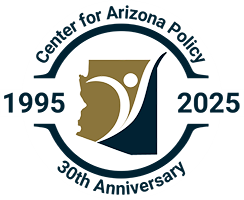Parents choose the education best meeting their children’s needs. They qualify for a scholarship.
Then, they encounter obstacles using the scholarship. That’s one of the problems CAP’s advocacy hopes to solve this legislative session.
The Empowerment Scholarship Account program (ESA) has helped thousands of children — most of whom are special needs — access the educational setting that best meets their unique needs.
The ESA program allows parents to withdraw their children from district or charter school and receive ninety percent of state funds allocated for their child for a variety of educational expenses, including therapy, tutors, textbooks, curriculum, tuition at private schools, and even fees for standardized tests. It is a win-win; the state saves money and children access an educational model that works for them.

However, many ESA families have had significant problems with the administration of the program. For example,
- Parents have faced the threat of collections amounting to thousands of dollars in cases where the Department of Education (ADE) retroactively rejects educational purchases that ADE had previously approved. Understandably, this scenario undermines trust in the program.
- Parents can use ESA funds to buy a complete curriculum, but they are not allowed to purchase a portion of a curriculum, even though the child might not need the entire curriculum and may need the funds for other educational resources.
- Parents are not allowed to use ESA funds to purchase the most basic educational resources like workbooks, flashcards, reading books, or even supplemental resources recommended by a curriculum.
- Parents constantly fear misspending because of inconsistent information they receive from ADE concerning approved curriculum and therapies, and delays in having their quarterly expense reports approved.
CAP-supported bill, SB 1395, sponsored by Senator Sylvia Allen (LD 6) fixes these types of problems so that the ESA program serves its intended purpose. These changes will help improve the overall operation of the program so that meeting the needs of students stays a top priority.
In addition to these changes, SB 1395 also enacts a series of reforms meant to enhance the efficiency and transparency of the ESA program:
- It requires ADE to post ESA enrollment and aggregate transaction data on its website each month.
- It requires ADE to contract with a private management firm to process and manage ESA accounts.
- It clarifies that students may not receive both an ESA and a School Tuition Organization (STO) tax credit scholarship at the same time.
- It requires ADE to create a policy handbook that incorporates public input into the department’s policies and procedures governing the ESA program.
- It creates the ESA Review Council made up of ESA parents, the chairpersons of the House and Senate education committees, and the superintendent of public instruction or designated representative.
In sum, SB 1395 increases accountability and transparency, and addresses problems with the administration of the program that have been identified by ESA families. This bill makes a great program even better.
For more information on the ESA program and SB 1395 click, here.
ICYMI- Latest News & Articles of Interest
- 2019 CAP Family Dinner w/special guest, Ben Shapiro on Tuesday, April 9.
- In a 5-4 vote, the U.S. Supreme Court blocks Louisiana’s law requiring health and safety measures for abortion clinics, including a requirement for hospital admitting privileges, until the case is litigated.
- Albert Mohler discusses Washington Post article by Richard Cohen where he argues that anyone who holds to biblical morality is a bigot and is unfit to serve in public office
Stay connected and consider receiving additional publications by joining the CAP Network.


